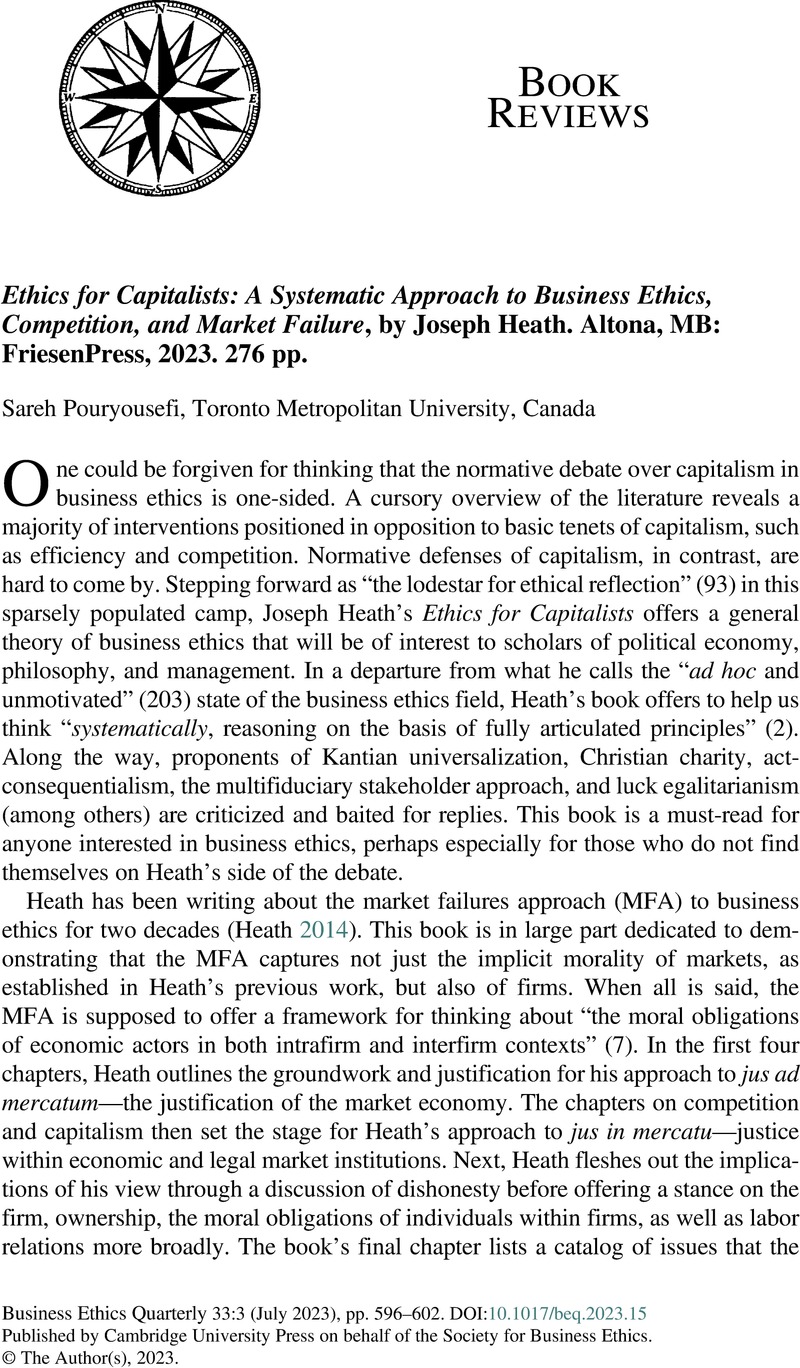No CrossRef data available.
Article contents
Ethics for Capitalists: A Systematic Approach to Business Ethics, Competition, and Market Failure, by Joseph Heath. Altona, MB: FriesenPress, 2023. 276 pp.
Review products
Ethics for Capitalists: A Systematic Approach to Business Ethics, Competition, and Market Failure, by Joseph Heath. Altona, MB: FriesenPress, 2023. 276 pp.
Published online by Cambridge University Press: 25 July 2023
Abstract
An abstract is not available for this content so a preview has been provided. Please use the Get access link above for information on how to access this content.

- Type
- Book Reviews
- Information
- Copyright
- © The Author(s), 2023. Published by Cambridge University Press on behalf of the Society for Business Ethics
References
REFERENCES
Habermas, Jürgen. 1987. Theory of Communicative Action. Vol. 2. Translated by McCarthy, Thomas. Boston: Beacon Press.Google Scholar
Heath, Joseph. 2014. Morality, Competition, and the Firm. New York: Oxford University Press.CrossRefGoogle Scholar
Hobbes, Thomas. (1665) 1994. Leviathan: With Selected Variants from the Latin Edition of 1668. Edited by Curley, E.. Indianapolis, IN: Hackett.Google Scholar
Matthews, R. C. O. 1981. “Morality, Competition and Efficiency.” The Manchester School 49 (4): 289–309.CrossRefGoogle Scholar
McMahon, Christopher. 1981. “Morality and the Invisible Hand.” Philosophy and Public Affairs 10 (3): 247–77.Google Scholar
McMahon, Christopher. 2012. Public Capitalism. Philadelphia: University of Pennsylvania Press.CrossRefGoogle Scholar
Pouryousefi, S. 2013. “A Normative Model of Professionalization: Implications for Business Ethics.” PhD diss., University of Toronto.Google Scholar


